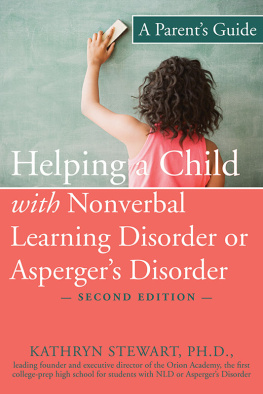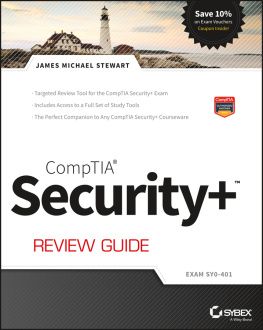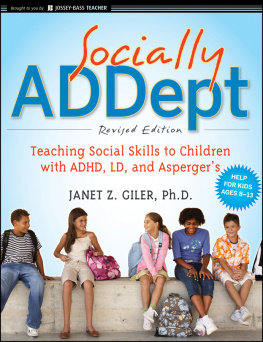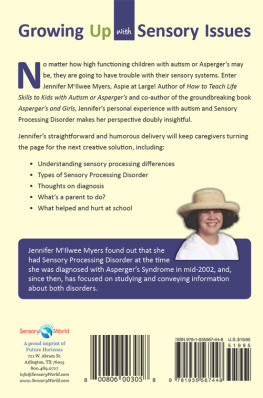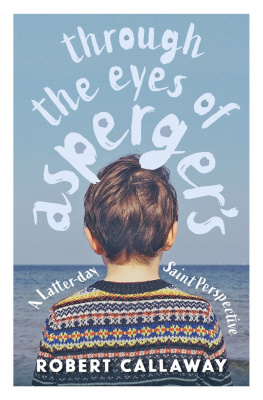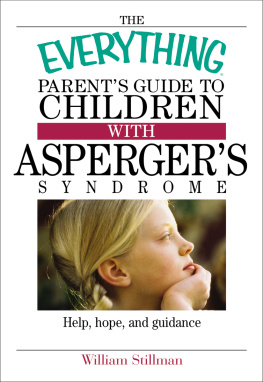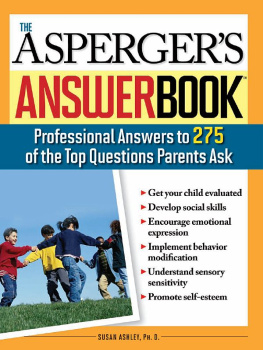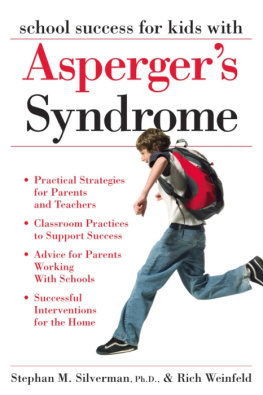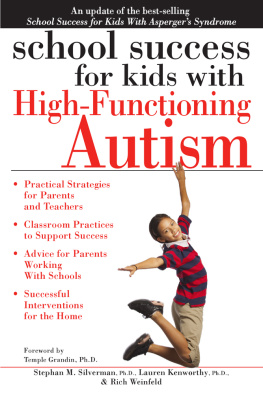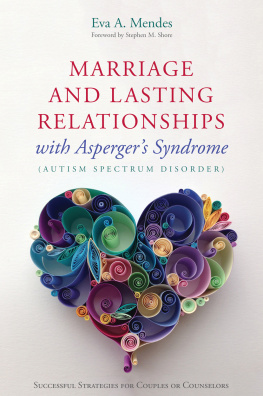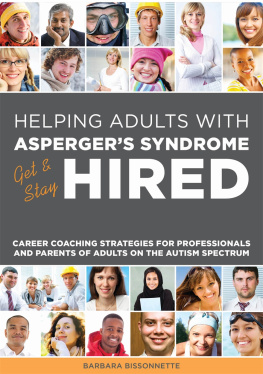Appendix A
Resources
Children with NLD or AD are a treasure and an asset to their families and to society. Their potential is unknown and often untapped in traditional educational settings. As we have seen throughout this book, special programming is needed to allow these children to overcome the limitations their particular disabilities present. These children will need intervention and support in their day-to-day lives, beginning with early diagnosis and program planning. This planning must include a long-range vision of how to move the child toward greater effectiveness and independence and away from helplessness and a definition of himself as a weak, incompetent person or an invalid.
Knowledge empowers people, and gaining knowledge about NLD and AD is an important first step for families, professionals who work with these children, and the children themselves. Families in particular need all the information they can get. Professionals need to receive training in handling these children and providing services for them. The children need to understand their disorder, to know it is not a mystery and that they arent so weirdthat there are many children like them who struggle with the same issues. The Harry Potter books, by J. K. Rowling, are particularly popular with these children (and other children too, of course). One of the reasons children with NLD or AD love these books is because they focus on a child who is born different and who doesnt fit in but who learns about himself and discovers the magic within him. For children with NLD or AD, this discovery process is essential, and it must be guided by knowledgeable adults.
Internet Sites
The Internet sites listed below are full of information and resources that can be extremely useful to parents and professionals interested in NLD and AD.
For nonverbal learning disorder, the following three sites are excellent:
- www.nldontheweb.org
- www.nldline.com
- www.nlda.org (the Nonverbal Learning Disability Association; NLDA)
For Aspergers disorder and related topics, the following sites are great places to start. They offer comprehensive information and links to other sources of information:
- www.udel.edu/bkirby/asperger (Online Asperger Syndrome Information and Support; OASIS)
- www.aspergersresource.org
- www.info.med.yale.edu/chldstdy/autism/index.html (Yale Developmental Disabilities Clinic)
- www.aspennj.org (Asperger Syndrome Educational Network; ASPEN)
- www.asperger.org (MAAP Services for Autism and Asperger Syndrome)
Programs
The list below is hardly comprehensive. Be sure to consult the Internet sites listed above for information on other programs that address the needs of students with NLD or AD. However, be advised that as the diagnoses of NLD and Aspergers are becoming more known, some programs may try to advertise themselves as appropriate to these students without really having the knowledge or experience to provide quality programs. Be an informed consumer.
- Orion Academy (Moraga, CA; www.orionacademy.org). Grades 9 through 12. Orion was the first high school in the country designed specifically for students with NLD or Aspergers. Established in 2000, it continues to expand and is focused on developing a model program for the education of students with neurocognitive disorders. Accredited by the Western Association of Schools and Colleges, Orion offers college preparatory education for bright students. Orion also offers a postsecondary program, the Pathways Program, that provides support and social activities for young adults transitioning into local colleges or employment.
- Bridges Academy (Sherman Oaks, CA; www.bridges.edu). Grades 6 through 12. This school is dedicated to educating gifted students with special learning needs.
- Raskob Institute and Day School (Oakland, CA; www.raskobinstitute.org). Grades 2 through 8. Designed for students with language-based learning disabilities, this school has experience with kids with NLD or Aspergers. They offer small classes without the distraction of kids with behavior problems, as well as strong social support and speech and language services. Children with reading problems do very well here.
- Star Academy (San Anselmo, CA; www.staracademy.org). Grades 2 through 9. This day program for students with AS and high-functioning autism addresses behavior issues and provides individualized programming with less academic pressure.
- Franklin Academy (East Haddam, CT; www.fa-ct.org). Grades 8 through 12. This boarding and day school focuses on students with NLD and related disorders.
- Pathways Academy (at McLean Hospital, Boston, MA; www.mclean.harvard.edu/patient/child/cnis.php). Ages 5 to 11. This day treatment program and school has a specific focus on Aspergers, high-functioning autism, and NLD.
- The Help Groups school (Los Angeles, CA; www.thehelpgroup.org). This organization offers a variety of services for children with different disorders at different campuses.
- College Internship Program (CIP; www.collegeinternshipprogram.com). With programs in Massachusetts, Florida, and Indiana, this organization helps college students with NLD or AS develop and achieve their career potential.
- College Living Experience (CLE; www.cleinc.net). With programs in Colorado, Texas, and Florida, this organization assists students with special needs in completing college and transitioning into an independent adult life.
Other Potential Resources for Parents
As mentioned several times in the book, its a good idea for parents to put together a team of well-informed professionals experienced with NLD or AD to help the child. These professionals can help ensure programming is appropriate to the childs needs. They can also provide an invaluable lifelong support network for the child. And dont overlook the benefit that children are often willing to do things for other adults that they wont do for their parents. Local school districts or professionals who work with students with NLD or AD may have a list of referrals.
It is always important to check the references of any professional youre considering working with, making sure the person has the appropriate licenses and training as well as experience with the issues relevant to your child. Reputable professionals should be more than willing to provide information on their training, experience, and license. Although confidentiality may prevent these professionals from giving out names of other clients, it should be possible for them to supply references from other professionals in the community, for example, doctors, teachers, or other therapists.
- Coaches: Seek licensed professionals certified as coaches with experience in life issues and organizational skills.
- Tutors: Tutors can be most useful in helping students be more successful with homework. They may work in specific subjects, such as math or writing, or they may help the child with organization in general. Some are credentialed teachers who specialize in learning disabilities; others are just high school or college students or interested adults in the community. Tutors without specific training as teachers can be helpful, but parents must understand the limitations of their abilities. If program planning and working with the school is involved, it is probably a better choice to find a credentialed teacher or an educational therapist.
- Educational therapists: These are certified professionals with hours of specialized training. They can be very valuable in program development and in individual work with the child. They can reinforce what is being taught at school, act as a case manager for the child, and oversee the childs workload, helping parents who are not educational professionals understand the needs of their child.
Next page
